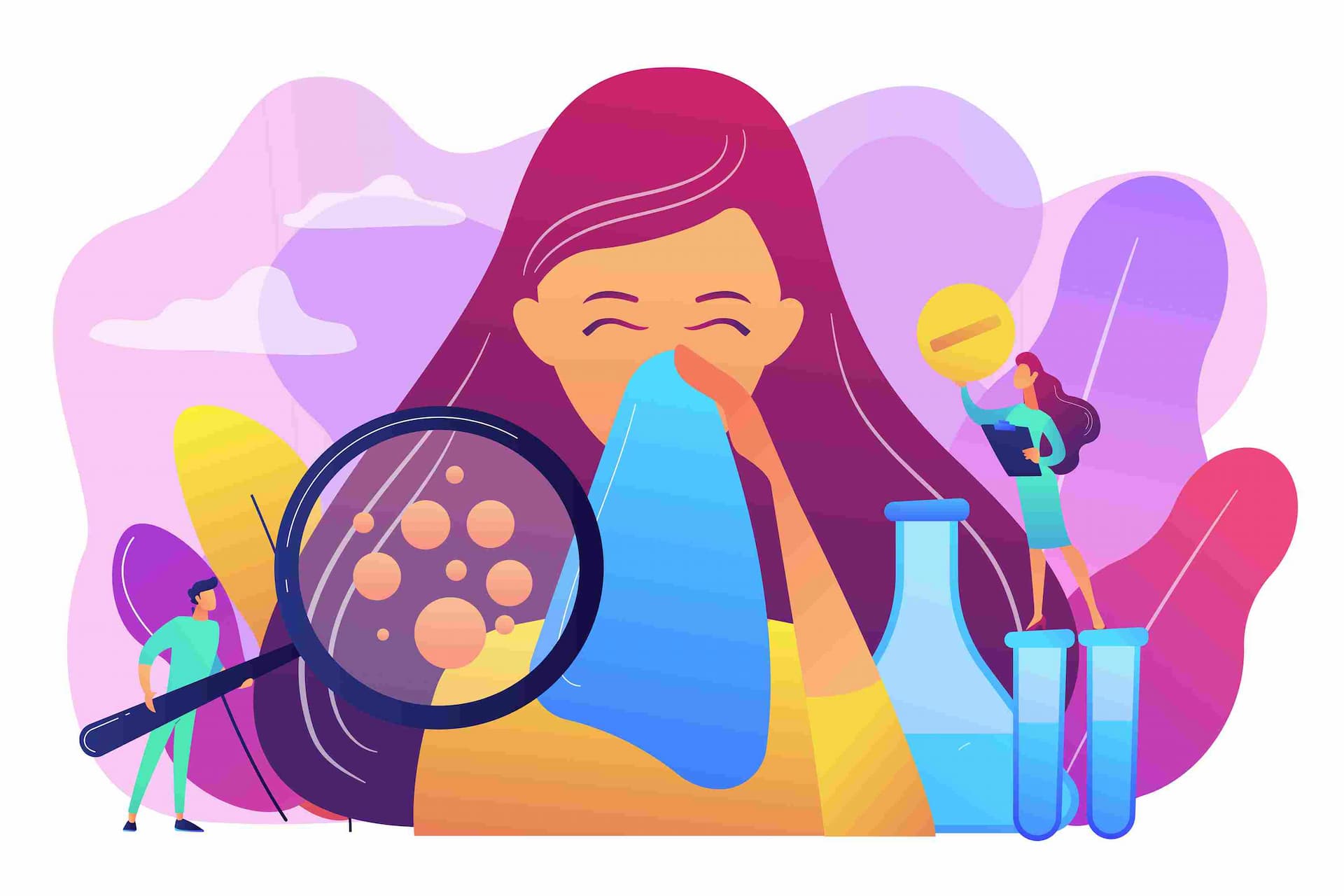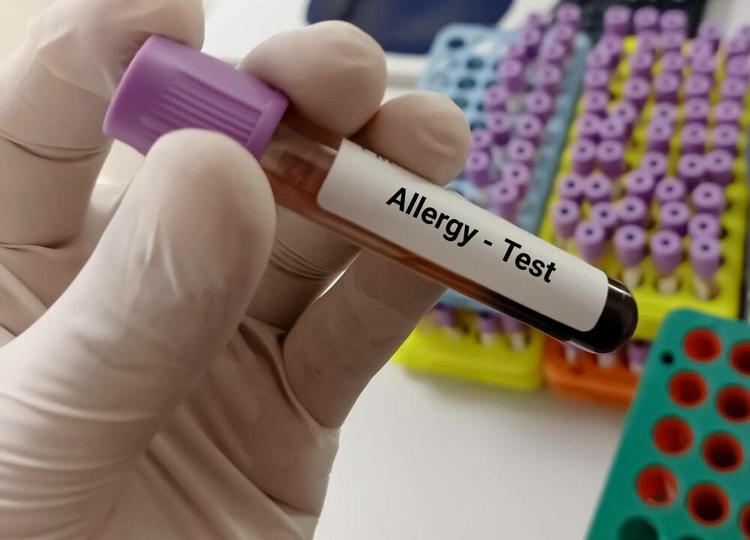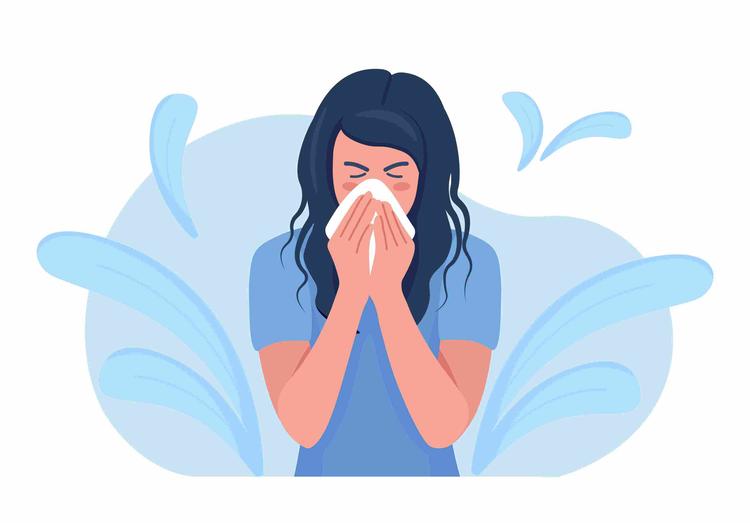Are You Allergic? Here Are The Ways to Find Out

Medically Reviewed By
Dr Divya Rohra
Written By Komal Daryani
on May 10, 2023
Last Edit Made By Komal Daryani
on Mar 18, 2024

Allergies seem to be rare but are highly common!
There are hundreds of types of allergies, and they show different symptoms. In India, the impact of allergies is so high that more than 37.5 million people suffer from asthma due to allergies. Out of which, 40-50% are pediatric cases.
Before we start discussing the cause of allergies, whether there are any Blood Tests For Allergy detection, and what are the symptoms of allergies, we should first understand what are allergies.
What Are Allergies?
Allergies are a type of immune system response to substances that are usually harmless to the body. These substances are known as allergens and can include pollen, certain foods, dust, animal dander, insect venom, and certain medications.
Allergies can be seasonal or year-round, and the severity of the symptoms can range from mild to life-threatening.
When an allergic person is exposed to an allergen, their immune system overreacts and produces antibodies called immunoglobulin E (IgE). These antibodies release chemicals, such as histamine, and trigger allergy symptoms.
The consequences of allergies highly depend upon the following:
- Type of Allergies
- Early or Late Diagnosis of Allergies
- The Strength of Your Immune System
- Right Treatment
- And Steps to Prevent Exposure to Allergens.
The best way to minimize the consequences of allergies is to notice their symptoms, seek Allergy Screening, and take steps to address them as soon as possible.
Now, the question arises, What are The Allergy Symptoms?
Symptoms of Allergy
Different allergies show up with different symptoms, and most are familiar with some of the most common medical conditions. So, next time you observe the signs below in you or your loved ones, you should not ignore them or opt for self-treatment by taking random medicines, as it can worsen the situation.

Here is the complete list of symptoms that indicate allergies.
- Sneezing
- Runny or stuffy nose
- Itchy or watery eyes
- Rashes or hives
- Swelling of the face, lips, tongue, or throat
- Coughing
- Wheezing or difficulty breathing
- Abdominal pain, diarrhea, or vomiting (it is usually in case of food allergies)
- Anaphylaxis (a life-threatening reaction that can cause difficulty breathing, a drop in blood pressure, and loss of consciousness)
These symptoms may appear seasonal or due to other health conditions, but the frequent appearance of such symptoms indicates an allergy. Moreover, if you pay close attention, allergies have triggers, and by avoiding those triggers, you will not see any signs.
As allergy symptoms often resemble other medical conditions, it’s difficult to acknowledge that you suffer from allergies.
So, what’s the way to identify that you are allergic?
Signs That Indicate You Are Allergic:
Allergy symptoms are often confused with symptoms of other medical conditions, such as fever, common cold, or flu. Here are some tips to help you identify if the symptoms you are experiencing are due to allergies:
- Duration of The Symptoms:
Allergy symptoms tend to last longer than cold or flu symptoms. Cold and flu symptoms usually improve after a few days, while allergy symptoms can persist for several weeks or months. So, if you face symptoms for a longer duration, ensure that you immediately opt for Allergy Screenings.
- Timing of Infection:
Allergies tend to have a seasonal pattern, with symptoms occurring during specific times of the year when the allergen is present. In contrast, cold and flu symptoms can occur at any time of the year. It requires attention & also observing the pattern if you suffer from specific disorders at a particular point in time. Also, as you observe Allergy Signs & Symptoms, it would require immediate attention.
- Triggers:
Allergy symptoms are triggered by exposure to specific allergens, such as pollen, dust, food items, or animal dander. In contrast, cold and flu symptoms are usually caused by viruses. When the signs come in contact with exposure to one thing or another, it becomes easy to identify the triggers. However, you should not assume or try & handle the situation without proper medical consultation, as it can further worsen the situation. The first step to manage allergies is to go for a Diagnosis of Allergies.
- Symptoms:
Apart from sneezing and coughing, there are more complicated signs & symptoms of Allergies. In case of allergies, one can feel nose, eyes, or throat itching, which is uncommon in cold or flu symptoms. For severe conditions, one can also feel difficulty in breathing. Cold and flu symptoms are more likely to include a fever, sore throat, and muscle aches.
- Family History:
You may be more likely to develop allergies if you have a family history of allergies. So, in this case, you shall not wait to observe severe signs and symptoms; instead, seek Allergy Screenings as preventive measures.
If you are experiencing symptoms that you believe may be related to allergies, it is recommended to consult a healthcare professional for proper diagnosis and treatment. Allergy testing, such as skin prick tests or blood tests for allergies, can be done to confirm the presence of allergies and identify specific allergens. Your doctor can also help rule out other medical conditions that may be causing your symptoms.
Know Your Allergies & Take Control of Your Health:
Allergies are both preventable and treatable. So, instead of making yourself suffer by trying to handle it without any medical consultation, taking charge of your health is essential. It’s necessary to take steps for both the prevention & cure of allergies.
If you already know you are allergic, it’s time to go for screening, consult the doctor, take medicines, and avoid triggers or allergens until you find the complete cure. It might take time to address & cure severe allergies like gluten, lactose, and other food allergies, but with medical assessment, getting rid of them is possible.
At Redcliffe Labs, we have several allergy-specific tests that can help you identify the allergies and consult the doctors further to assist in addressing the same. Do not delay, or else it will worsen your condition further. Moreover, if you cannot make time out of your busy schedule to visit the lab, you can book a test online from Redcliffe Labs and get a home sample collection.
Leave a comment
1 Comments
Anandita Bansal
May 15, 2023 at 10:46 AM.
Hi, I start to have rashes after eating mango in summer. Could i be allergic to mango?
Myhealth Team
May 16, 2023 at 6:40 AM.
Hi Anandita, Thankyou for the enquiry. It is possible that you could be allergic to mango. Mango allergy is not very common, but it can occur. Mango allergy is usually a type of oral allergy syndrome (OAS), which is a common condition that causes allergic reactions to certain fruits, vegetables, and nuts. For further evaluation of your condition you can book a test with us by going to the link https://redcliffelabs.com/mango-allergy. Thankyou


